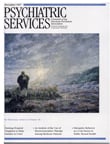Psychiatric-Mental Health Nursing
I recommend this six-part text for undergraduate nursing students and practicing psychiatric nurses.
Sections 1 through 3 focus on the essential components and concepts of psychiatric nursing. Special cultural and developmental needs of the client are addressed. An informative and useful discussion of legal and ethical issues the student and practicing nurse may encounter when treating the psychiatric client is included.
A key chapter, written by coeditor Fortinash, covers the six-step nursing process. Fortinash does an outstanding job of instructing the student in the use of nursing diagnosis. She also compares and contrasts nursing and medical assessment frameworks in an easy-to-read table format. She presents evidence of multidisciplinary collaboration using examples of a multidisciplinary treatment plan, a standard of care, and a clinical pathway for a client with bipolar disorder, mania.
The major organizing frameworks for part 4, with its chapters on major mental illnesses, are presented from both nursing and medical perspectives, using the diagnoses of the North American Nursing Diagnosis Association and DSM-IV. Each chapter presents a relevant case study followed by the DSM-IV multiaxial diagnosis, the relevant nursing diagnosis, and examples of outstanding nursing care plans, which include well-written accounts of client outcomes. The authors believe in the "practicality and effectiveness of the collaborative efforts of nursing and medicine whenever possible." This philosophy makes the text particularly useful for nursing students and practicing psychiatric nurses, as there is no need to translate abstract psychosocial concepts into the realities of current practice.
Part 5 does a credible job of explaining complex concepts, such as the therapeutic relationship, transference, and boundaries, in a way that beginning nursing students can easily grasp. The authors are astute observers of students' anxieties and fears and seek to reassure students by predicting and explaining the learning process.
A discussion of therapeutic milieu, group therapy, and family work is presented in a focused and succinct manner. The reader will want to spend time on the section on group therapy, as it is such an important modality in the care of patients. The emphasis on the multidisciplinary approach continues with a chapter devoted to the adjunctive therapies, such as occupational therapy. An excellent chapter on psychopharmacology is supplemented by 39 perforated, detachable drug cards at the back of the book. Donna Aguilera, a well-known author in psychiatric nursing, explains the historical antecedents and the essential components of crisis therapy.
Part 6 reviews important contemporary issues a psychiatric nurse may help her patient manage—for example, surviving violence, loss and grief, AIDS, the psychological sequelae of physiological illness, and chronic mental illness. The text's final chapter concludes with a very timely discussion of the shifting of the locus of care from the hospital to the community, which is, ironically, nursing's roots.
Appendix D contains clinical pathways for alcohol dependence, bipolar affective disorder, dementia, and major depression. This appendix is state of the art and is a must-see for anyone involved in pathway development.
Ms. Slade is manager of the partial hospital and chemical dependence programs and psychiatric emergency services at Northwestern Memorial Hospital in Chicago.



